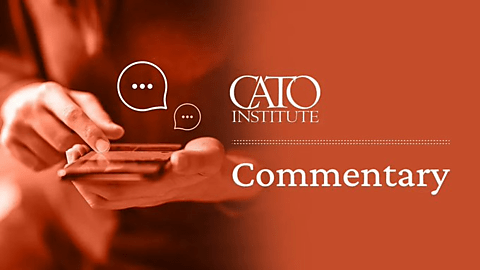Kevin Dowd and Nicholas Anthony
Advocates of central bank digital currencies (CBDCs) often claim that CBDCs will help increase financial inclusion, by which they typically mean that CBDCs will help to “bank the unbanked.” To give some typical examples:
Too many Americans don’t have access to easy payments systems and banking accounts, and I think this is something that a digital dollar, a central bank digital currency, could help with. – Janet Yellen (2021)
A well‐designed CBDC is uniquely positioned to address barriers to inclusion, including by offering the unbanked alternative pathways to open transactional accounts and participate in the digital economy … – Henry Fingerhut et al. (2022)
CBDC could strengthen the usability, resilience, and efficiency of payment systems and increase financial inclusion. – Bo Li (2023)
However, such claims are weak.
CBDCs and Financial Inclusion in the United States
The Federal Deposit Insurance Corporation (FDIC) regularly conducts a survey of the American people to get a better understanding of how and why many people operate “outside” of the banking system. According to the latest survey, the proportion of American households that do not have access to a bank account (i.e., “unbanked Americans”) was 4.5 percent (Figure 1). While relatively small, that number accounted for roughly 5.9 million households.
Deeper within the survey, the FDIC asked these Americans why they do not have a bank account. “Don’t have enough money to meet minimum balance requirements” was the most cited main reason. “Don’t trust banks,” “Avoiding a bank gives more privacy,” and “Bank account fees are too high” were the second, third, and fourth most cited main reasons, respectively.
Introducing a CBDC would do little to address any of these concerns.
Whether it is because someone lacks the money to meet minimum balance requirements or to cover fees, a CBDC is not really a solution because the payment method itself does nothing to increase someone’s income. Sure, it’s possible that governments might subsidize accounts to eliminate those costs on the front end, but if such subsidies are to occur, they could be done using any consumer payment method. There is nothing inherently unique about a CBDC that is needed to make that happen.
Access to a CBDC (or a “digital dollar”) is not the same as having access to a bank account. Where a bank account opens the door for receiving loans, lines of credit, and other financial services, a CBDC does little more than offer access to digital payments. In fact, a CBDC is much more akin to a prepaid card than a bank account. Although there are advocates that have called for it, governments getting into the business of commercial banking is a much bigger issue than creating a CBDC alone.
Still, what about privacy and trust? For people who currently choose not to have a bank account because they don’t trust banks or prefer to maintain their financial privacy, a CBDC is far from a solution. People might not trust banks, but trust in the government has been at historic lows. Furthermore, unless a CBDC operates without the same anti‐money laundering (AML) and know‐your‐customer (KYC) requirements that the government forces banks to comply with, many unbanked Americans would likely avoid a CBDC.
To make matters worse, CBDC proponents seem to overlook that the private sector has much more expertise and experience in customer‐facing activities. In fact, it’s likely largely due to the private sector that the number of unbanked households has fallen from 8.2 percent to just 4.5 percent over the last ten years (Figure 1). The proliferation of mobile banking, basic bank accounts, and the like have made banking more accessible than ever before.
Still Much to Do
If policymakers want to promote financial inclusion, there are more direct options on the table.
Rather than expand the government with the creation of a CBDC and everything that entails, policymakers should focus on removing legislative barriers to competition. Opening the door to new entrants could make it so that the number of unbanked households continues to decrease and the quality of financial services available at the lower end of the spectrum continues to increase.
There is no shortage of options for policymakers looking for legislative barriers to remove in order to improve financial inclusion. To start, the Bank Secrecy Act is what legally requires banks to collect and report the personal information of customers to the government. Altogether it cost financial institutions an estimated $45.9 billion in 2022—those are costs that are passed on to consumers.
Elsewhere, the Durbin Amendment (Section 1075 of the 2010 Dodd‐Frank Act) established price controls that made it more difficult for banks to offer low‐cost accounts. Even from the perspective of merchants, one study found that the Durbin Amendment “had limited and unequal impact on reducing merchants’ costs… and it has produced unintended consequences for some merchants in terms of raising costs.”
These examples are only the tip of the iceberg, but the point is simple. Rather than launching another new government intervention that is unlikely to address the problems faced by the unbanked, removing legislative barriers to a more competitive financial sector has the power to open doors for those outside the financial system. It’s time to drop the illusion of CBDC inclusion and focus on reforms that can create substantive change today.

